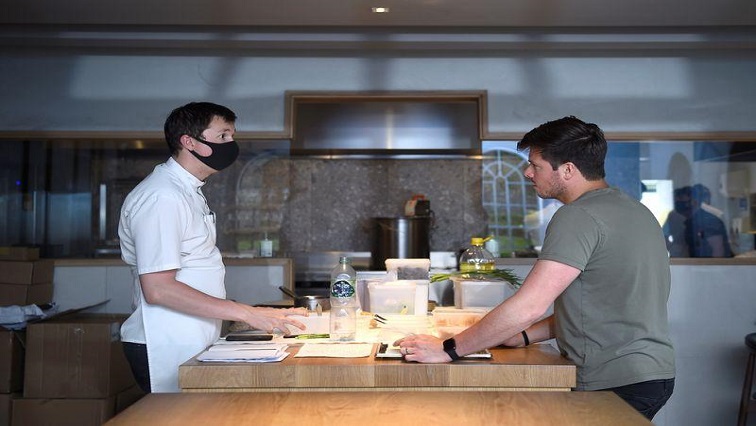In October 2019, shortly after opening, chef Jordan Bailey’s Aimsir restaurant in County Kildare won two Michelin stars. Ten months later he was selling lobster rolls and lamb kebabs from a camper van.
Having been closed entirely to guests – like the rest of a hospitality industry emerging from Ireland’s third COVID-19 lockdown – for all but four of the past 15 months, he had to innovate to survive.
“It really kicked in a few weeks into lockdown when things were getting worse and worse and worse, that’s when it got really scary and forced us to start thinking how can we keep Aimsir going?” said Bailey.
An estimated 25% of Irish restaurants have turned their hands to offering meal delivery or collection services or, in some cases, even transformed their dining rooms into greengrocer shops.
Their flexibility has helped limit the economic impact of the current, longest lockdown to Ireland’s finance department estimates, around half that of the first in 2020.
Aimsir has been selling weekly meal kits featuring the likes of puffed cod skin and deer with smoked bone marrow emulsion, and a QR code for home cooks to access instructional videos.
General manager Majken Bech-Bailey, the other half of the husband-and-wife team, calls them a lifesaver that has even boosted revenues.
A lifesaver is also how Barry Fitzgerald describes the 30-40 euro a head cook-at-home collection kits he has sold out of through much of lockdown at his Bastible and Clanbrassil House restaurants near Dublin’s deserted city centre.
Operating at 50-60% of pre-pandemic revenue with lower staff costs, a temporary halving of rent, and wage subsidies and grants from the government have kept both restaurants afloat and allowed him to rebuild cash flow.
“It’s pretty scary just seeing your bank balance fade away,” said Fitzgerald. “I’m so thankful the dining public was sick of cooking (from fresh) at home.”
Despite most stores and the entire hospitality sector having been shut down since late December, Irish retail sales rose above pre-pandemic levels from February to April.
That points to adaptability, also typified by the Dublin bookstore owner who took to her pushbike to deliver books when click-and-collect was banned, that Finance Minister Paschal Donohoe described as extraordinary.
Monthly spending on restaurant food, having collapsed 76% year-on-year to 75 million euros ($91 million) in April 2020 during the first lockdown, hit 215 million euros in November during the second one and has averaged 175 million euros during the third.






